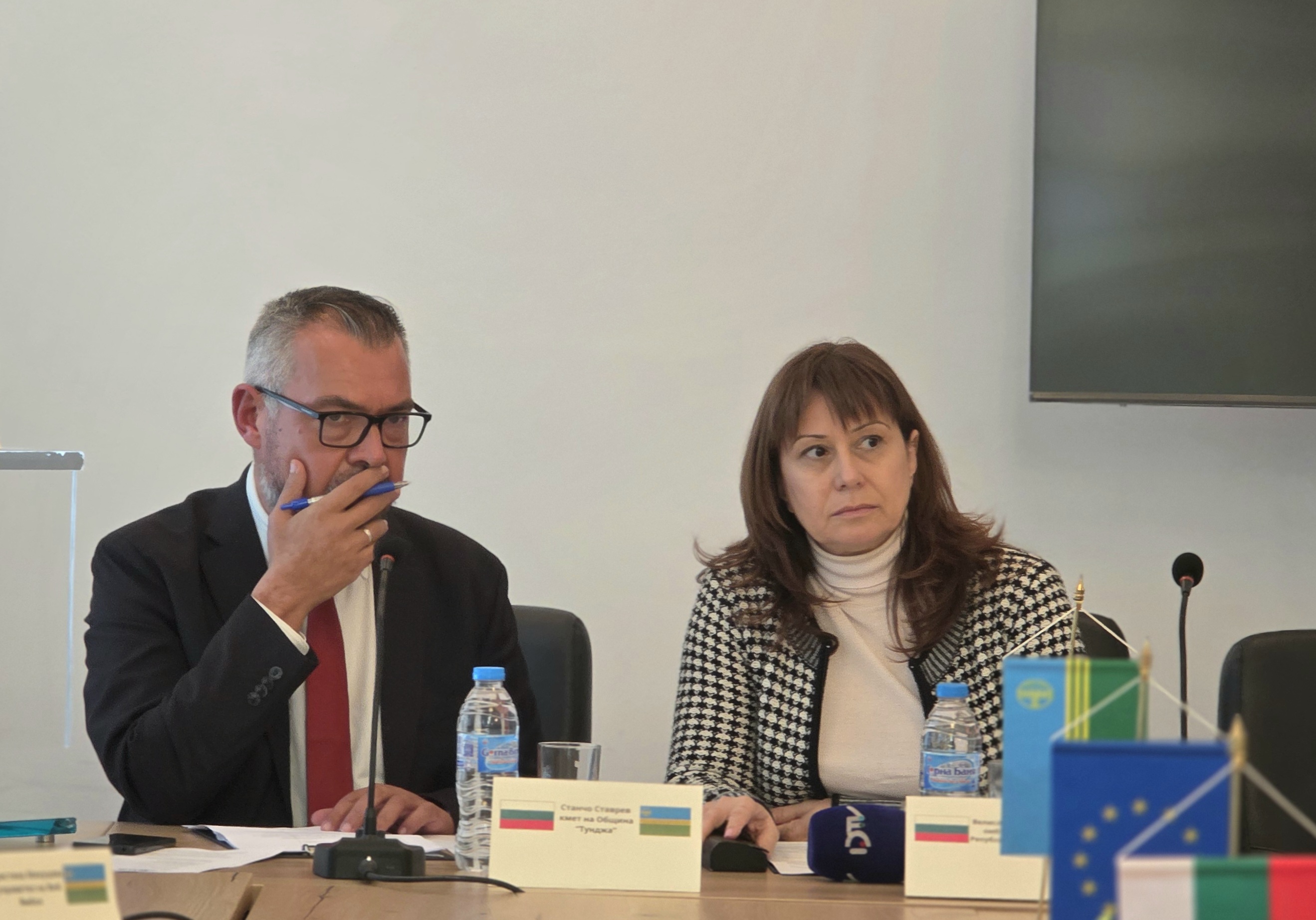News
Ombudsman Velislava Delcheva commits to addressing water supply issues in the municipality of Tundzha

6 October 2025
The Ombudsman of the Republic of Bulgaria, Velislava Delcheva, has committed to addressing the problems with water supply and frequent power outages in the settlements of the Tundzha Municipality, Yambol Region, and will seek the cooperation of all competent institutions to resolve them. This became clear during a meeting on the problems with the water supply and sewerage infrastructure, initiated by the mayor of the municipality, Stancho Stavrev, and chaired by the chairman of the Municipal Council, Atanas Hristov, on the occasion of the 38th anniversary of the establishment of the municipality of Tundzha as an independent administrative unit.
The meeting was also attended by the regional governor of Yambol, Nikolay Kostadinov, members of parliament from the region, Dimitar Ivanov, Seifi Mehmedali, and Krasimir Yordanov, the manager of "VIK – Yambol" Hristina Mikutseva, mayors and deputy mayors from the settlements in the municipality, municipal councilors, representatives of the administration, and citizens.
For over two hours, participants discussed long-standing problems with the outdated and depreciated water supply and sewerage network, frequent breakdowns, loss of drinking water, and the need for financing, rehabilitation, and modernization of the infrastructure.
Ombudsman Velislava Delcheva has committed to working with members of parliament to prepare an assessment of the Water Strategy, which expired in 2023, and to create a new national strategy that will ensure long-term and sustainable management of water resources in all municipalities in the country.
"I have already presented my opinion on the bill on water supply and sanitation, but if you have new proposals, I will work together with the members of parliament to ensure that this law is drafted in such a way that it meets the real needs of municipalities and people. For me, it is important that municipalities have a predictable, sustainable, and reliable financial instrument at their disposal so that they can tackle their local and regional problems," said the Ombudsman.
She also said she's ready to help out with this at the National Water Board and that she's into the idea from "ViK – Yambol" to set up a national coordination mechanism, like the cool thing they've got going in Varna. "Varna Water Supply and Sewerage is a good example—there is a unifying link around which the municipalities, the regional governor, and the citizens work. Institutions such as the Ministry of Environment and Water, the Ministry of Regional Development and Public Works, and the Regional Health Inspectorate should also be included in this model, especially where there is a problem with water quality," Delcheva emphasized.
The Ombudsman also expressed support for the initiative of the Ministry of Environment and Water to declare easements in the water supply and sewerage sector as objects of national importance.
Stavrev also announced that the municipality expects funding from the state budget in the amount of over BGN 9 million for the replacement and rehabilitation of the water supply network in the village of Botevo and for the final stage of the sewerage system in the village of Veselinovo. He added that the advance payment for the largest water supply and sewerage project – the replacement of the water supply network in the village of Botevo – has already been transferred.
The mayor was adamant that the water supply and sewerage network could not be the sole responsibility of municipalities and water supply and sewerage operators, as it was a seriously depreciated infrastructure requiring consistent state policy and resources. He emphasized the need to create a state fund to support the implementation of water supply and sewerage projects, especially in small municipalities.
The regional governor and chairman of the local water supply and sewerage association, Nikolay Kostadinov, insisted on a thorough analysis of water supply and sewerage accidents on the supply pipelines and the internal water supply network, their prioritization, and the subsequent search for a suitable source of funding. He also stressed that in conditions of drought, it was necessary to seek new water sources.
The managing director of "VIK – Yambol" Hristina Mikutseva announced that the total length of the water supply and sewerage network in Tundzha is 896 km, which represents about 50% of the entire water supply network in the Yambol region. From January to September 2025, 1,264 breakdowns were registered in the municipality, and a total of 2,755 in the entire region.
The mayors of the settlements shared specific examples of difficulties – in the village of Kozarevo, there has been an emergency leak in a micro-reservoir since January, and there is also a damaged fire hydrant that cannot be repaired and requires an expenditure of BGN 1,200 for its renewal each time it is used. A similar situation has occurred in the village of Mezhda, where hundreds of liters of drinking water have been leaking since the beginning of the year. In some villages, such as Skalitsa, there are only two stopcocks, which makes it difficult to repair leaks and leads to new leaks when the water is turned on after repairs.
All participants in the meeting agreed that effective solutions to problems in the water and sewerage sector can only be achieved through coordinated action between local authorities, state institutions, and water supply and sewerage operators.
"Only through joint efforts, clear coordination, and predictable state policy can the people of the Tundzha Municipality be guaranteed access to quality drinking water and secure infrastructure," concluded Ombudsman Velislava Delcheva.


